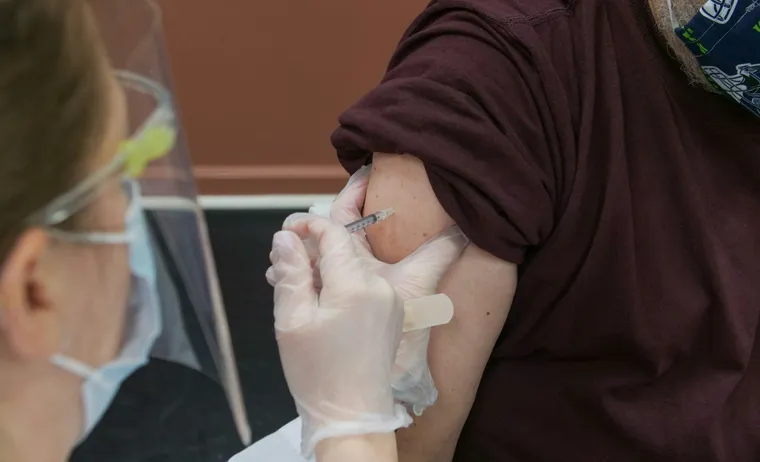Causing symptoms such as cough, fever, and difficulty breathing. It can affect anyone, but certain groups, such as older adults, young children, and those with weakened immune systems, are at higher risk. But when should you get a pneumonia shot? This article will delve into the details to help you make an informed decision.
Understanding Pneumococcal Vaccines
There are two primary types of pneumococcal vaccines available: the Pneumococcal Conjugate Vaccine (PCV) and the Pneumococcal Polysaccharide Vaccine (PPSV). Each serves a specific purpose and target group:
- Pneumococcal Conjugate Vaccine (PCV): This vaccine, often referred to as PCV13 or Prevnar 13, protects against 13 types of pneumococcal bacteria. It is typically administered to infants and young children, but it is also recommended for adults 65 years and older and for individuals with certain medical conditions.
- Pneumococcal Polysaccharide Vaccine (PPSV): Known as PPSV23 or Pneumovax 23, this vaccine protects against 23 types of pneumococcal bacteria. It is recommended for all adults 65 years and older, as well as for people aged 2 to 64 years who are at increased risk of pneumococcal disease.
Timing of the Pneumonia Shot
For Infants and Young Children
The Centers for Disease Control and Prevention (CDC) recommends a series of PCV13 shots for all children starting at 2 months of age. The vaccination schedule typically includes doses at:
- 2 months
- 4 months
- 6 months
- 12 through 15 months
This schedule ensures that children are protected at a young age when they are most vulnerable to severe pneumococcal infections.
For Adults Aged 65 and Older
For adults 65 years and older, the CDC recommends the following:
- PCV13 (if not previously received): One dose of PCV13, followed by a dose of PPSV23 at least one year later.
- PPSV23: If the individual has already received a dose of PPSV23 before age 65, another dose should be given at age 65 or older, at least five years after the previous PPSV23 dose.
This combination of PCV13 and PPSV23 helps to provide broad protection against pneumococcal disease.
For Individuals with Certain Medical Conditions
Certain medical conditions can increase the risk of pneumococcal disease, including:
- Chronic heart, lung, or liver diseases
- Diabetes
- Conditions that weaken the immune system, such as HIV/AIDS or cancer
- Cochlear implants
- Cerebrospinal fluid leaks
For these individuals, the vaccination schedule may vary based on their specific condition and age. It is essential to consult with a healthcare provider to determine the appropriate timing and type of pneumococcal vaccines needed.
Benefits of Pneumococcal Vaccination
Vaccination is a crucial tool in preventing pneumonia and its severe complications. Here are some key benefits:
- Protection Against Multiple Strains: Both PCV13 and PPSV23 offer protection against numerous strains of pneumococcal bacteria, reducing the risk of infection.
- Prevention of Severe Illness: Vaccination can prevent severe pneumococcal disease, which can lead to hospitalization, long-term health problems, or even death.
- Herd Immunity: Vaccinating vulnerable populations, such as children and older adults, helps to reduce the overall spread of pneumococcal bacteria in the community, providing indirect protection to others.
- Cost-Effectiveness: Preventing pneumonia through vaccination can reduce healthcare costs associated with treating the disease, including hospital stays and long-term care.
Addressing Common Concerns
Some individuals may have concerns about the pneumonia shot, including its safety and potential side effects. Here are some key points to consider:
- Safety: Pneumococcal vaccines are safe and have been extensively studied. The most common side effects are mild and include pain at the injection site, fatigue, and mild fever.
- Effectiveness: The vaccines are highly effective at preventing severe pneumococcal disease, especially when administered according to the recommended schedule.
- Consultation: It is always best to consult with a healthcare provider to address any specific concerns or questions about the vaccine and to ensure it is appropriate for your individual health needs.
Conclusion
Getting a pneumonia shot is an essential step in protecting yourself and your loved ones from the potentially severe consequences of pneumococcal disease. By understanding the types of vaccines available, the recommended timing for different age groups and medical conditions, and the benefits of vaccination, you can make an informed decision about when to get vaccinated. Remember to consult with your healthcare provider to determine the best vaccination plan for you or your family members.

